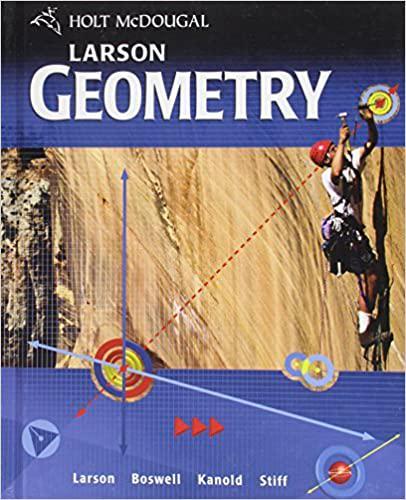Question
ECONOMICS 46.Marginal revenue is a. Equal to price in monopolistic competition. b. The change in total revenue associated with increasing prices. c. Greater than price
ECONOMICS
46.Marginal revenue is
a. Equal to price in monopolistic competition.
b. The change in total revenue associated with
increasing prices.
c. Greater than price in pure competition.
d. The change in total revenue associated with
producing and selling one more unit.
47.In microeconomics, the distinguishing
characteristic of the long run on the supply side is
that
a. Only supply factors determine price and output.
b. Only demand factors determine price and
output.
c. Firms are not allowed to enter or exit the
industry.
d. All inputs are variable.
48. What is the main factor that differentiates the
short-run cost function from the long run cost
function
a. Nothing, the two functions are identical.
b. The level of technology.
c. Changes in government subsidies.
d. The nature of the costs.
Items 49 and 50 are based on the following
information:
Karen Parker wants to establish an environmental
testing company that would specialize in
evaluating the quality of water found in rivers and
streams. However, Parker has discovered that she
needs either certification or approval from five
separate local and state agencies before she can
commence business. Also, the necessary
equipment to begin would cost several million
dollars. Nevertheless, Parker believes that if
she is able to obtain capital resources, she can
gain market share from the two major ompetitors.
49.The large capital outlay necessary for the
equipment is an example of a(n)
a. Entry barrier.
b. Minimum efficient scale.
c. Created barrier.
d. Production possibility boundary.
50.The market structure Karen Parker is
attempting to enter isbestdescribed as
a. A natural monopoly.
b. A cartel.
c. An oligopoly.
d. Monopolistic competition.
51.The distinguishing characteristic of oligopolistic
markets is
a. A single seller of a homogeneous product with
no close substitutes.
b. A single seller of a heterogeneous product with
no close substitutes.
c. Lack of entry and exit barriers in the industry.
d. Mutual interdependence of firm pricing and
output decisions.
52.Economic markets that are characterized by
monopolistic competition have all of the following
characteristics except
a. One seller of the product.
b. Economies or diseconomies of scale.
c. Advertising.
d. Heterogeneous products.
53. Which type of economic market structure is
characterized by a few large sellers of a product
or service, engaging in primarily nonprice
competition
a. Monopoly.
b. Oligopoly.
c. Perfect competition.
d. Monopolistic competition.
54. Which type of economic market structure is
composed of a large number of sellers, each
producing an identical product, and with no
significant barriers to entry and exit
a. Monopoly.
b. Oligopoly.
c. Perfect competition
d. Monopolistic competition.
55.A natural monopoly exists because
a. The firm owns natural resources.
b. The firms holds patents.
c. Economic and technical conditions permit only
one efficient supplier.
d. The government is the only supplier.
56.A market with many independent firms, low
barriers to entry, and product differentiation is
bestclassified as
a. A monopoly.
b. A natural monopoly.
c. Monopolistic competition.
d. An oligopoly.
57.Which of the following is nota key assumption
of perfect competition?
a. Firms sell a homogeneous product.
b. Customers are indifferent about which firm
they buy from.
c. The level of a firm's output is small relative to
the industry's total output.
d. Each firm can price its product above the
industry price.
58.An oligopolist faces a "kinked" demand curve.
This terminology indicates that
a. When an oligopolist lowers its price, the other
firms in the oligopoly will match the price
reduction, but if the oligopolist raises its price, the
other firms will ignore the price change.
b. An oligopolist faces a nonlinear demand for its
product, and price changes will have little effect
on demand for that product.
c. An oligopolist can sell its product at any price,
but after the "saturation point" another oligopolist
will lower its price and, therefore, shift the
demand curve to the left.
d. Consumers have no effect on the demand
curve, and an oligopolist can shape the curve to
optimize its own efficiency.
Aggregate Demand and Business Cycles
59. If consumer confidence falls, the impact upon
the economy is
a. A downturn.
b. An upturn.5
c. No change.
d. Consumer confidence does not have an impact
upon the economy.
60.If an increase in government purchases of
goods and services of P20 billion causes
equilibrium GDP to rise by P80 billion, and if total
taxes and investment are constant,
the marginal propensity to consume out of
disposable income is
a. 0.75
b. 0.25
c. 1.25
d. 4.00
NEED ANSWERS ASAP!!! WRONG ANSWERS WILL BE DISLIKE!!!
Step by Step Solution
There are 3 Steps involved in it
Step: 1

Get Instant Access to Expert-Tailored Solutions
See step-by-step solutions with expert insights and AI powered tools for academic success
Step: 2

Step: 3

Ace Your Homework with AI
Get the answers you need in no time with our AI-driven, step-by-step assistance
Get Started


